John Freeman catches up with Bobby Joseph, the UK Comics Laureate for 2023-25, an acclaimed comic writer, artist, tutor and editor whose work has often challenged and inspired its readers. His early work includes the creation of Skank magazine, where his best-known strip, “Scotland Yardie”, first featured, and later collected by Knockabout…
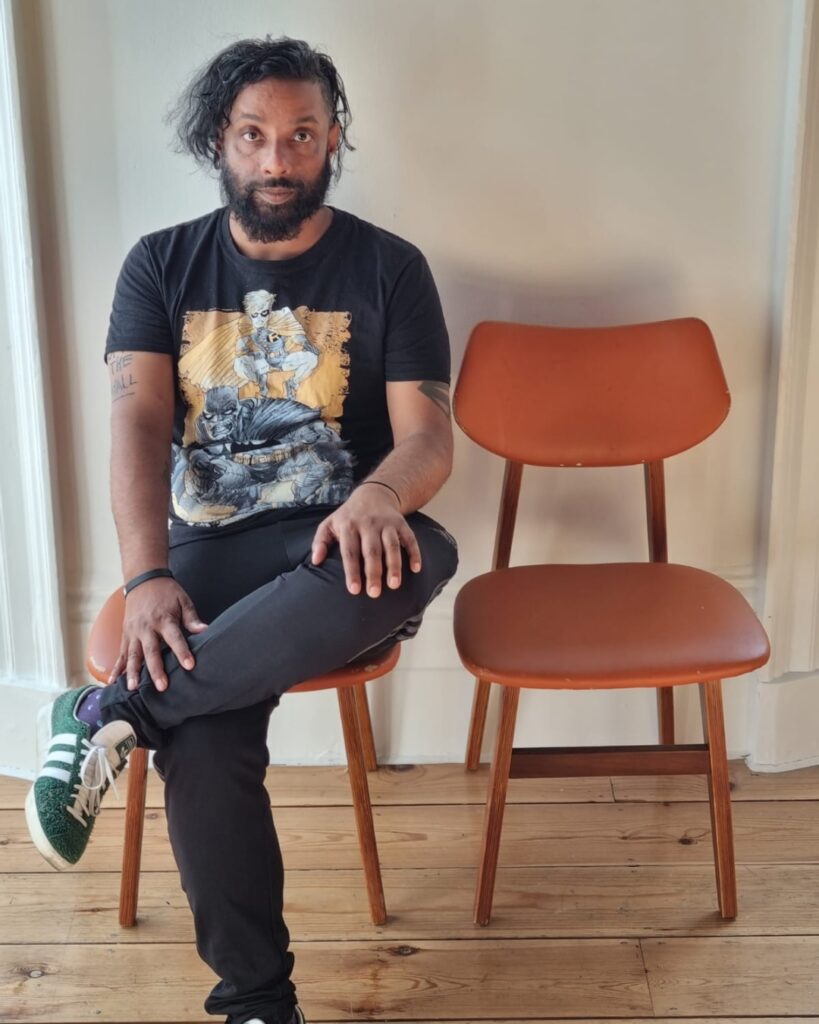
For those comic fans unfamiliar with you and your work, how did you come to comics and what are you best known for?
Bobby Joseph: I am an Asian South London comic creator whose work I feel has often challenged and was later told, has inspired readers. My early work includes the creation of cult comic classic Skank magazine, where my best-known strip, “Scotland Yardie”, was first featured, and was later published by Knockabout Press in 2017 to much acclaim.
I got into comics in the early nineties. As a comic creator there were no opportunities for people of colour to write and create their own comic strips. Especially since the majority of comics at that time in the UK were produced with barely any diversity or representation. Being the stubborn ‘Injun’ rude boy, that I am, I ignored the cliquey UK comic scene and went about blazing my own path. All I wanted to do was write and draw comic strips about my area, the music I was listening to, the people I knew, the community I was in, and most of all, the life and trials of ‘road life’ that was happening in South London at that point in 1994. I felt there were many jokes, and many stories to tell.
Luckily, I met the publishers Dotun Adebayo and Steve Pope (who created the Black publishing house, X-Press Books) and they gave me the opportunity to create a platform for unknown comic creators of colour using the Viz format. From that union of us three (me, Dotun and Steve), Skank came into being and I went and found Black, and Asian comic creators from around the way, which included my co-editors Danny F, Michael Robinson, Gaz Coley, as well as the artists Gee Miah, and Dee Lewis). We also gave others a spotlight previously unavailable to them. So, we opened our own doors to working in the UK comics industry.
When you were approached about taking on the role of Comics Laureate, what was your reaction?
I was pleasantly surprised about it. Hopefully I can make some impact using the role to help build the profile of comics and up-and-coming comic creators in the UK.
How do you hope to build on the work of previous Laureates – Dave Gibbons, Charlie Adlard, Hannah Berry and Stephen L. Holland?
The previous Laureates are all amazing peeps! Weirdly, I have equated us all as one person, kind of like The Doctor in Doctor Who So, in theory, each Laureate has regenerated into the other. We started off with the bombastic Dave Gibbons, whose advice to me was “Bobby, let me give you a life lesson, always remember and understand the value of a good pen.” Of which is sage advice from a master of the craft. Then Charlie Adlard, came along, who goes off and does loads of great comic stuff to advance the medium. Then there is Hannah Berry, who is pushing for better things for comic creators with the work she does independently and with the Comics Cultural Impact Collective crew.
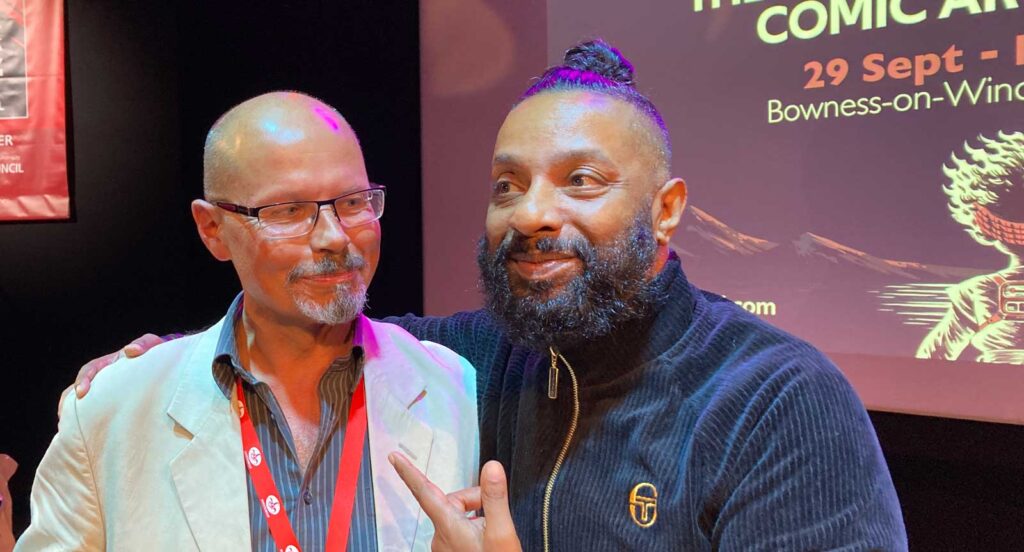
A person who deserves his flowers as Laureate, is the brilliant Stephen L. Holland, whose tireless work with libraries and school have helped up the profile of comics tremendously in this country. I hope to build on what these amazing people have done with the role but add my own swagga/twist to it.
My focus will be about diversity and representation. What can we do in the UK to improve that? Also, on a separate note, and continuing with the Doctor Who analogy, both Hannah and Stephen as well as myself now refer to each other by number only. However, that means I am the Peter Davison Comics Laureate. So, am the pretty one with a bit of celery stuck to my lapel. Which, in hindsight sums me up pretty well.
Are there specific projects you have identified that you’re working on?
There are projects I am working on at the moment and when they are ready, I will release more info. I would like to raise literacy using comics as a gateway, not only in schools but also in prisons. One of the things I can talk about is the Comics Rights Market, the brilliant opportunity that LICAF have created with the Arts Council and the lovely Charlie Adlard. Hopefully, this new initiative can push UK Comic creators to that next plateau and let the world experience what the UK can truly offer. The talent we have, deserves that international platform.
What are the major challenges facing comic creators today?
Financial burden is probably the thing that hits most comic creators, lack of publishing opportunities is another. In the UK. opportunity and avenues for work to be published is missing for today’s up-and-coming comic creators. There is a whole new generation of comic creators on the scene, finding their voices. This is why we are seeing a growth in self-publishing and Kickstarter projects from the new breed, as there are very few comic publishers that want to publish work reflective of the audience that actually buys graphic novels and comics. These new creators are the ones that will end up dictating the directions of comics in the future.
Back in the day we had Deadline comic – an anthology series featuring comics by up-and-comers. At some point, we will have at least 30 different types of Deadline being sold in various ways from new comic creators or up-and-coming artistic co-ops – the possibilities to put out work via online, on-demand print books and cheap printers are endless.
Will publishers be needed? I dunno. However, they need to change their game to survive, we need more publishers to come out of their holes and understand that there are different audiences out there. Who’s buying comics nowadays? Go into a comic shop, a book shop. Find out. Understand there are other markets there. Comic publishers like Avery Hill and Knockabout get that and are fighting the good fight, but we also need more publishers to break their outdated publishing models and offer more avenues, more opportunities to create more Zoe Thorogoods, Ed Firths, Shazleen Khans, Lucy Sullivans, Sayra Begums, Shangomola Edunjobis, Colleen Douglas’s, and Cory Brothersons.
Publishers need to be the solution, not the problem.
What do you think comic creators can do to surmount those challenges?
If you are comic creator, hustle. Don’t be put off. You are a product, sell your product. Do not let your work just speak for itself. Do not sleep on your work. We are in the TikTok age – attention span is short, shorter than ever in this day-and-age (and I say this as a person, who has taught in Secondary schools). Promote yourself consistently on social media, build your following/audience. If you are artist, sell commissions. Sell prints. If you’re a writer, pitch non-stop ideas to everyone. And I mean everyone! Go for it. Build your craft. Be better! Do not give up. This ain’t a race, but it is a pace! Also, there is funding out there.
The Arts Council have a Developing Your Creative Practice scheme that runs four times a year. It is open to comic creatives and the grant is up 10,000 pounds – so apply. What are you waiting for?
Similarly, despite the rise in the popularity of manga and the use of comics in children’s books, there seems to be a dearth of comics as some might remember them in newsagents. Do you think we should be concerned, or should we be doing more to promote where comics areavailable, rather than where they aren’t?
Times have changed and we need to move along with them. We tend to look at the breadth of comics in the newsagent from back in the day with rose-tinted glasses. That said, I used to get so vexed when I went to my local newsagent, and they didn’t have my monthly copy of Green Lantern. And then be even more vexed the month after when I got the next part of the story without having read the first part (this is pre-internet, kiddies!).
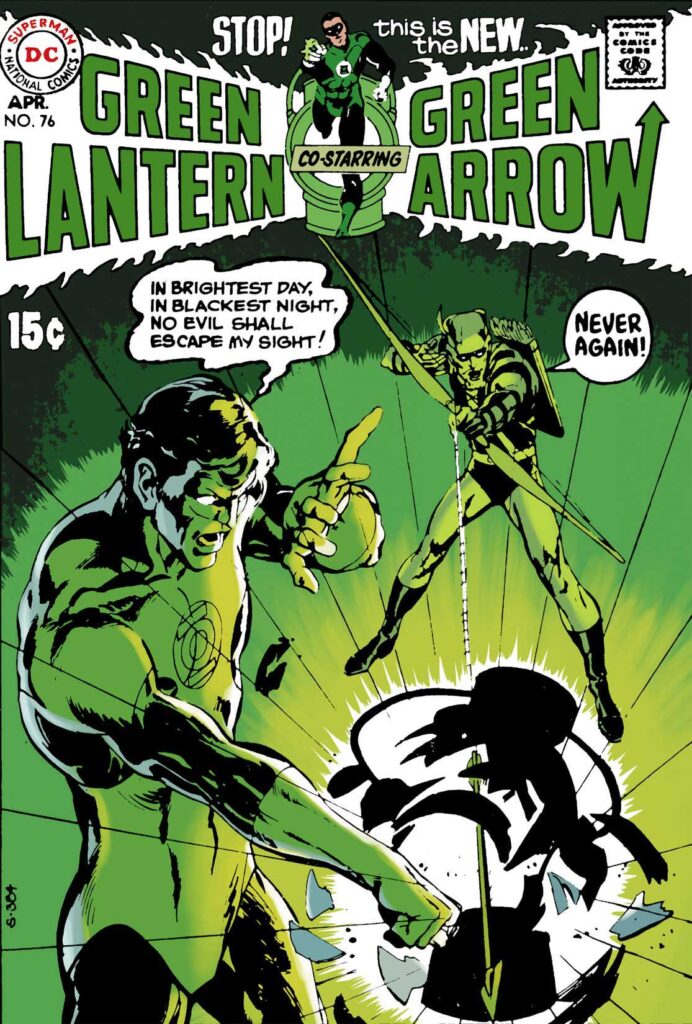
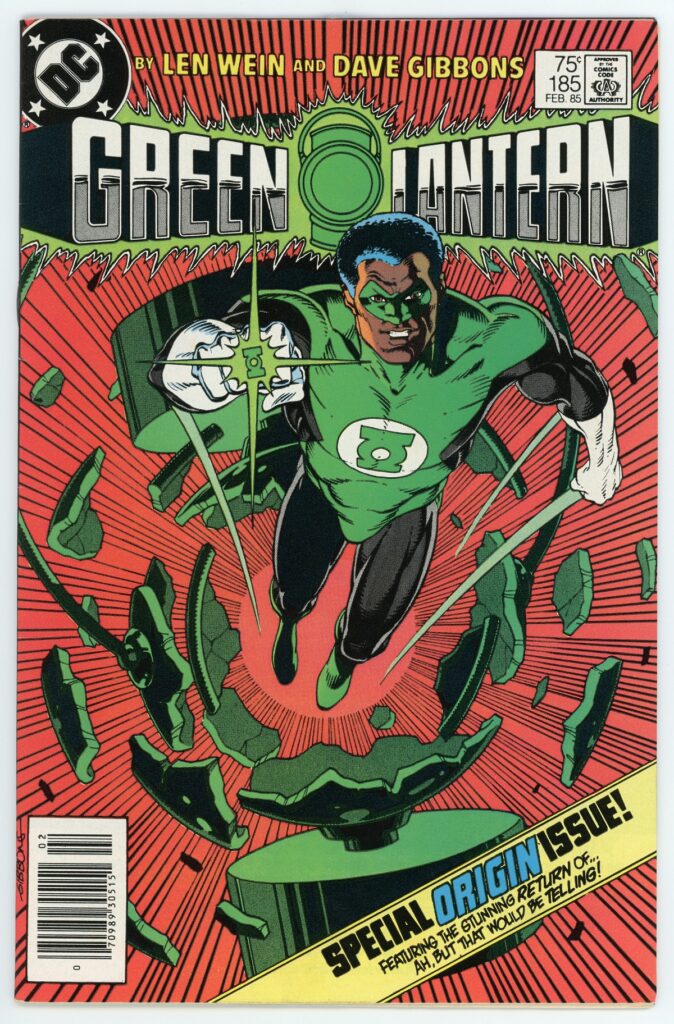
As periodicals have evolved, so have comics. We can see that comics can be ordered online, or can be downloaded onto tablets. Newsagents are now just an aspect of copies sold (almost like a cherry on top). We have bigger accessibility to getting comics than we did twenty or thirty years ago. If people want them, they will find them.
So therefore, I am not sure that a sign in a newsagent saying “comics sold here” will help, simply because audience’s pathways to purchasing have changed. Also add to the fact that generally, people have adapted to becoming more insular nowadays, and they would rather order off their phones than walk five minutes down the road to pick the same item up. Not me though, I love walking five long minutes to the shop!
Do you think comics and the comics form is a useful way to teach people to read?
Comics are a brilliant medium to teach people to read. It was how I became the voracious reading beast that I am now. I was reading Marvel and DC before my ABC, and 123 books. Once I became a reader, it became the gateway to read other works. The only reading regret was Ulysses (a sad story, another story, another time). Eventually, it all led to comics and teaching. Strangely enough, one of the challenging classes I taught was a Year 8 class, and by using the graphic novel Macbeth, it made them understand the story better. So, comics win. We win. Always!
Which comic creators do you most admire and recommend?
This is dependent on who I am reading at the moment. Back in the day, it was Alan Moore, Frank Miller, Howard Chaykin and the Hernandez Bros., as they were just my era of rebellious comic creators changing the artform. Currently, I am into Fletcher Hanks (whose comics scare the crap out of me and I shouldn’t read them before I go to bed – facts!), Moebius, David Mazzucchelli, and our very own Zoe Thorogood. I mainly read comic creatives that have challenged or are challenging what comics can be.
Is there a comic project you yourself would love to work on and get published, given opportunity?
This is always a strange question for me. I was asked recently by a fellow comic creative if I wanted to write for either Marvel or DC Comics. This is a yes and no answer for me. No, in the sense where I would write a main flagship character like Batman – dunno if I could authentically write about a billionaire beating up the mentally ill, and poor people from oppressive social environments and backgrounds. So, vigilantes are out!
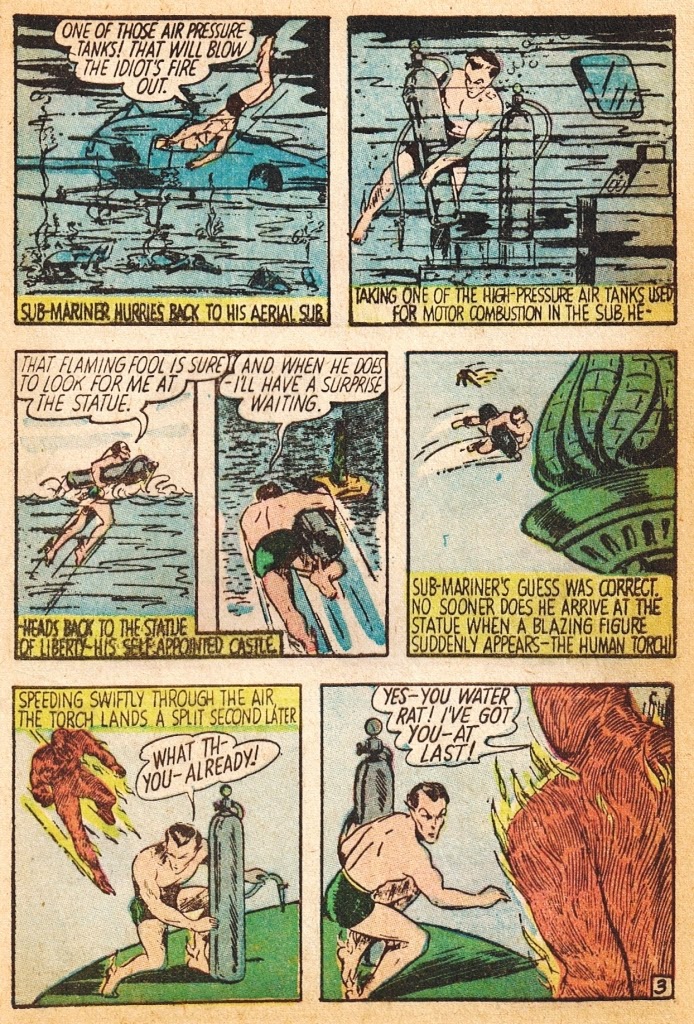
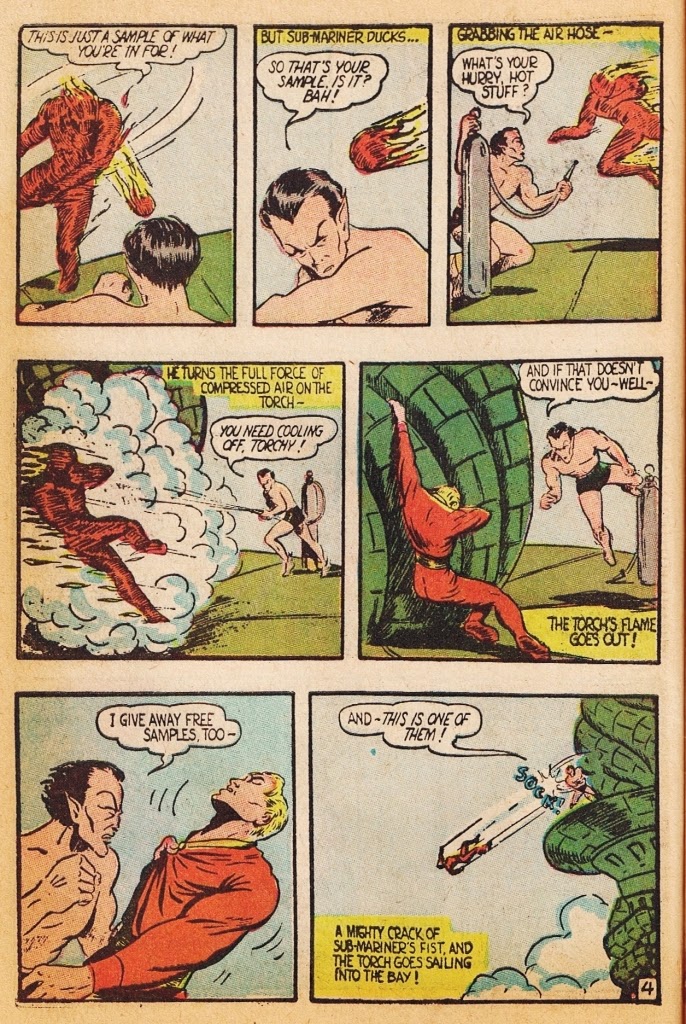
However, I would write the hell out of something like Prince Namor – The Submariner. It would begin with the trucks. I would deffo get rid of the costume and put him back in those reef greens. After all, what do you think would intimidate bad guys more? A man dressed as a bat or a man equipped in snug, green swimming trunks? Coz you gotta have a certain confidence to fight crime in just swimming trunks.
That would be my only condition to write it. Namor in trunks, that’s it! And then I would make him the badass that Bill Everett intended.
Bobby, thank you for your time and the very best of luck with all your projects.
Bobby Joseph is taking part in Renfrewshire Libraries Will Eisner Week celebrations, appearing 7.00 – 8.00pm Friday 1st March 2024, at Paisley Central Library, 22 High St, Paisley PA1 2BS | Book your ticket via EventBrite
• Follow Bobby Joseph on X @comics_laureate @skankmagazine | Instagram: @bobbyjosephcomics | BlueSky
• Find out more about the work of the UK Comics Laureate here on the Lakes International Comic Art Festival website or look out for announcements about his work on the Comics Can Change the World site, also run by the Festival
The founder of downthetubes, which he established in 1998. John works as a comics and magazine editor, writer, and on promotional work for the Lakes International Comic Art Festival. He is currently editor of Star Trek Explorer, published by Titan – his third tour of duty on the title originally titled Star Trek Magazine.
Working in British comics publishing since the 1980s, his credits include editor of titles such as Doctor Who Magazine, Babylon 5 Magazine, and more. He also edited the comics anthology STRIP Magazine and edited several audio comics for ROK Comics. He has also edited several comic collections, including volumes of “Charley’s War” and “Dan Dare”.
He’s the writer of “Pilgrim: Secrets and Lies” for B7 Comics; “Crucible”, a creator-owned project with 2000AD artist Smuzz; and “Death Duty” and “Skow Dogs” with Dave Hailwood.
Categories: British Comics, Comic Creator Interviews, Comic Creator Spotlight, Comics, Creating Comics, downthetubes Comics News, downthetubes News, Features
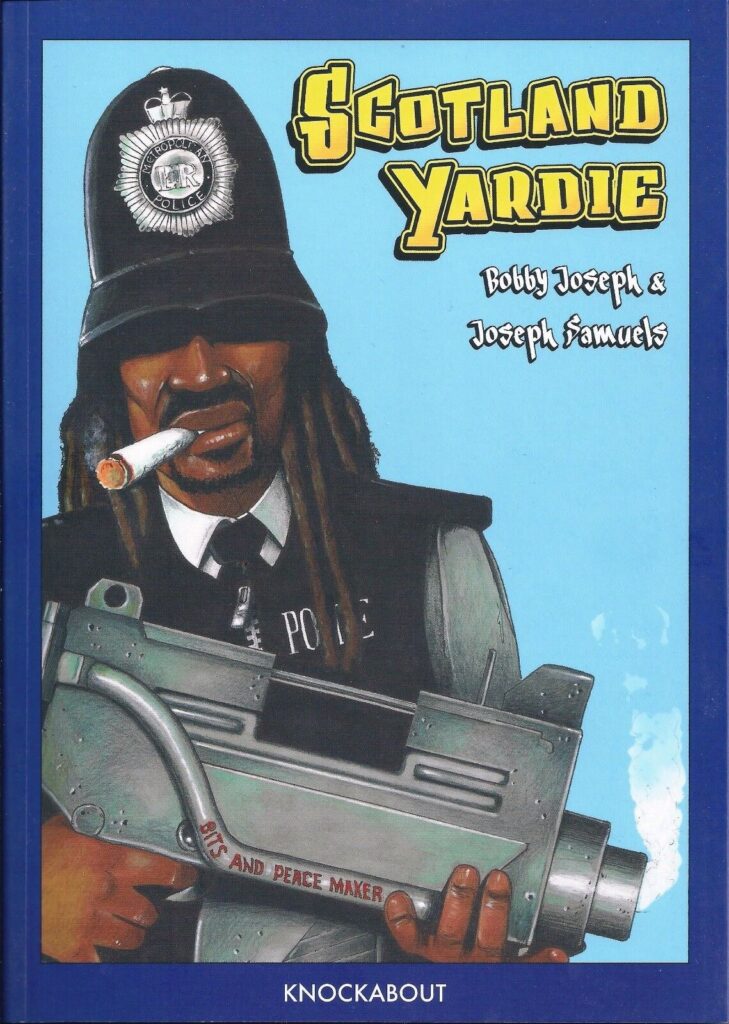
 Creating Comics: An Interview with Commando writer, and former editor, Calum Laird
Creating Comics: An Interview with Commando writer, and former editor, Calum Laird  Creating Comics: Alec Worley and Dani talk “Black Beth”, Rebellion’s new sword and sorcery special
Creating Comics: Alec Worley and Dani talk “Black Beth”, Rebellion’s new sword and sorcery special 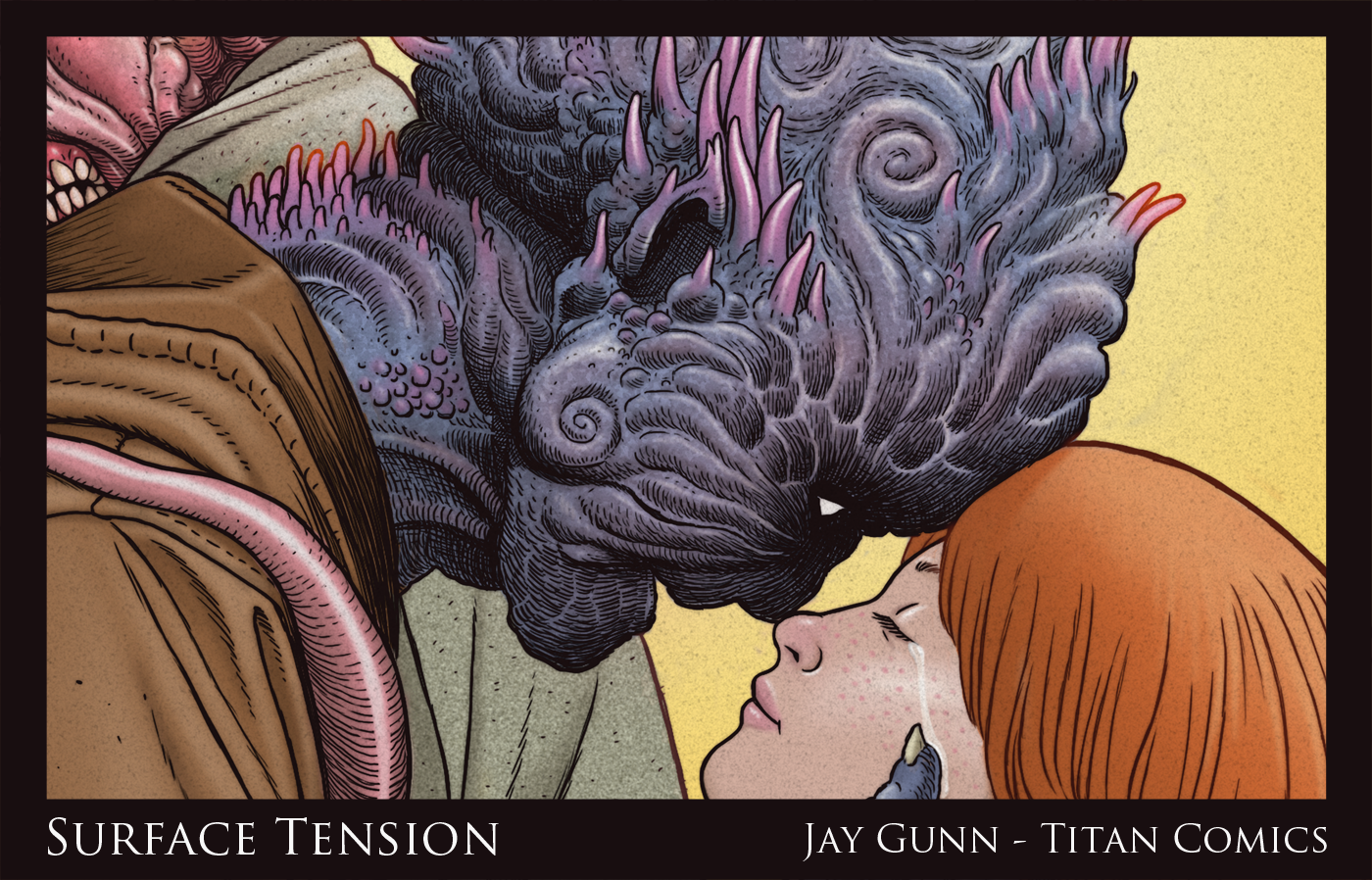 Breaking Surface: An Interview with Jay Gunn, creator of “Surface Tension”
Breaking Surface: An Interview with Jay Gunn, creator of “Surface Tension”